Scars, whether they result from accidents, injury, illness, or surgery, may become unsightly, and over time they can change in unpredictable ways, sometimes changing color or raising the surrounding skin. Scar revision surgery is a highly individualized treatment designed to eliminate all or a portion of a scar, reducing its size or otherwise diminishing its appearance.
Scar Revision surgery may include topical medications, injections, steroids, and/or revision surgery. Scars vary widely, depending on several factors, including the location and extent of the original injury or surgery, as well as each individual’s natural ability to heal. Other factors include the size and depth of the wound, the flow of blood to the area, the direction of the cut or injury, and the health and condition of your skin.
Although many scars eventually fade away on their own, some scars persist for a lifetime, detracting from an otherwise attractive appearance. Fortunately, thanks to advanced reconstructive surgery techniques, an unsightly scar does not have to be a life sentence. There are several options available for diminishing the appearance of scars and keloids, so you don’t have to live with these marks forever.
It’s best to observe the behavior of a scar for a period of time before deciding to intervene with scar revision. Dr. Jones may recommend postponing scar revision surgery for twelve months or more following the original injury or surgery before determining the course of scar revision surgery.
While many scars at first may appear substantial and bothersome, some will fade away on their own, becoming naturally less visible and cumbersome over time. In cases where scars produce discomfort like soreness and itching, steroids or other medications may provide some relief.






Hypertrophic scars are like keloids and the two are often confused, since both may appear as thick, red bumps or lesions. Hypertrophic scars differ from keloids, however, in that they typically do not exceed the boundaries of the original wound.
Hypertrophic scars often fade and improve naturally over the course of years, so it’s best to observe them for a year or so. Steroid treatments, medications, or injections may assist in accelerating the healing process, and scar revision surgery may be performed if the scar does not diminish on its own. Steroid injections may be administered during the actual surgery, with follow-up treatment sessions required for up to two years.
Contractures are scars that result from burns or other injuries that damage a large area of skin. These scars pull at the edges of the wound by means of a process called contraction. In some cases, contractures may affect muscles and connective tissue surrounding the wound, affecting the Atlanta scar revision surgery patient’s ability to move, and/or causing pain and discomfort.
In the case of contractures, revision surgery typically requires replacing the scar with a skin graft or flap of skin from another area of the body. Newer, more advanced procedures such as Z-plasty and tissue expansion have shown promising outcomes when treating contractures. In some cases, contracture patients may require physical therapy in addition to revision surgery to successfully restore full range of motion and function to the affected area.
While it is impossible to erase any scar completely, it is possible to dramatically reduce the visibility of a scar by means of injections and medications, and through scar revision surgery. While it may be impossible to completely erase any scar, revision surgery can dramatically reduce the size, intensity, or color of a scar and diminish its appearance.
Keloids are a specific type of scar that typically appears as thick, raised bumps at the site of the original injury or incision.
Keloids may be reddish or violet, and appear darker than the surrounding skin. While keloids may be treated if they cause unpleasant symptoms such as itching or stinging, unfortunately, people who are genetically prone to keloids will typically get them again and again over the course of their lives. Keloids develop when the body produces excessive amounts of collagen during the course of healing a wound, typically continuing to grow long after the wound has healed.
While keloids are said to occur most commonly in the area of the breastbone, chest, throat, shoulders, and earlobes, they may appear anywhere on the body.
Keloids are more frequently seen in people with darker complexions versus those with lighter skin, and the genetic tendency to produce keloids is more common among African descendants than among other ethnic groups. Because keloids are the result of excessive collagen production, the tendency to develop keloids will often decrease as people get older, when the body naturally decreases its production of collagen.
If you have always wished you could get rid of certain scars or keloids, consider scar revision surgery and/or other reconstructive surgical procedures provided by Dr. Nicholas Jones, a double board-certified Atlanta plastic surgeon serving patients in the greater Atlanta area.
At Nip & Tuck plastic surgery, we strive to deliver the best scar revision surgery Atlanta has to offer. For more information about scar revision surgery, contact us at (404) 777-TUCK to schedule a scar revision surgery consultation.
Keloids may be treated with steroid injections directly into the scar tissue to treat symptoms like redness, itching, and stinging, and these treatments may also help render the scar less visible, reducing its thickness or color in some cases.
Unfortunately, the tendency to get keloids is hereditary. Scar revision combined with steroid injections or radiation therapy and the wearing of a pressure garment for periods up to a year may provide some relief and diminish the appearance of keloids. Still, keloids are symptoms of a genetic condition, and they will keep coming back, meaning that you’ll need follow-up procedures to control their appearance every few years.
Come visit Dr. Jones and our team and let us help you achieve the spectacular look you deserve!
3280 Howell Mill Rd NW, Suite 200, Atlanta, GA 30327




